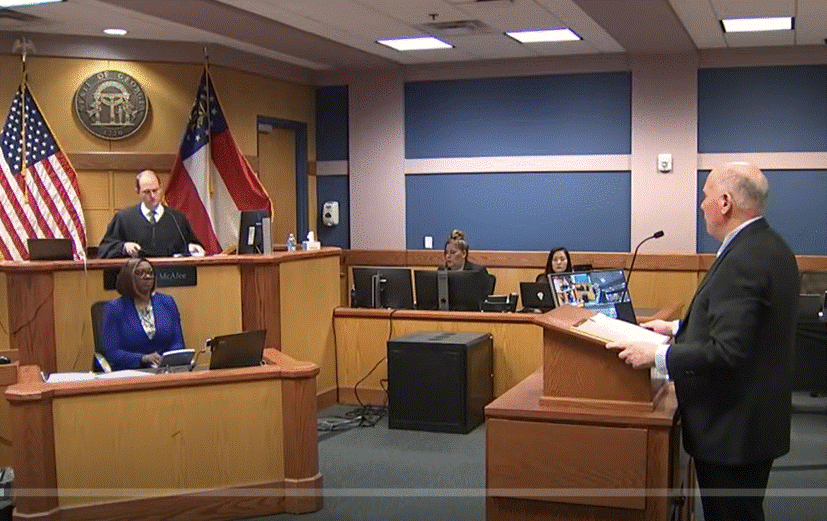INTERLOCUTORY APPEAL EXPLAINED

Steven Sadow addressing Judge McAfee in Fulton County, Georgia Court.
By SNN.BZ STAFF
At SyndicatedNews.NET (SNN.BZ) we try to accompany any story with its associated legal briefs (if any apply). Steve Sadow wrote this appeal and it’s attracting global attention. Here’s the document explained…
An Interlocutory Appeal, also known as an interim appeal, occurs when a ruling by a trial court is appealed while other aspects of the case are still proceeding. Here are the key points about interlocutory appeals:
- Definition: An interlocutory appeal is made before all claims are resolved as to all parties. It challenges a specific ruling or order issued during ongoing litigation, even though the case itself is not yet fully concluded.
- Criteria for Interlocutory Appeals:
- Conclusiveness: The matter appealed must be conclusive on the issue presented.
- Collateral to the Merits: The matter appealed should be collateral to the main merits of the case.
- Effectively Unreviewable: Immediate appeal must be allowed because waiting would significantly prejudice the rights of one of the parties.
- Certification: In some cases, the trial judge can “certify” an order for immediate interlocutory appeal. For example, if claims and issues have been resolved as to one defendant but not others, the concluded part of the case can be appealed while the rest continues.
- Federal Courts: The Supreme Court of the United States established the collateral order doctrine for federal courts. It allows interlocutory appeals if the three criteria mentioned above are met.
In summary, an interlocutory appeal provides a mechanism for parties to challenge specific court decisions during ongoing litigation, even before the entire case reaches its final resolution.



